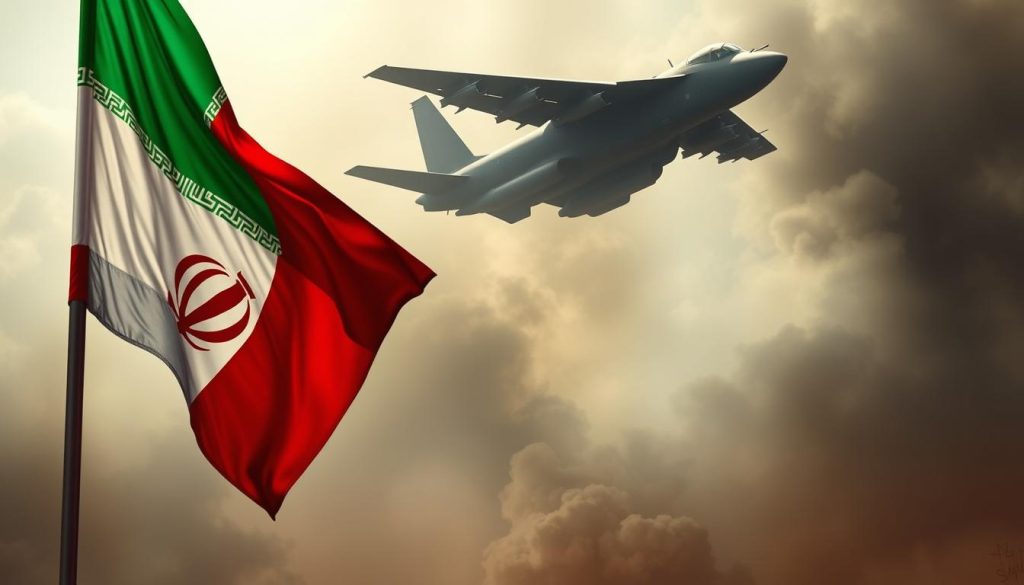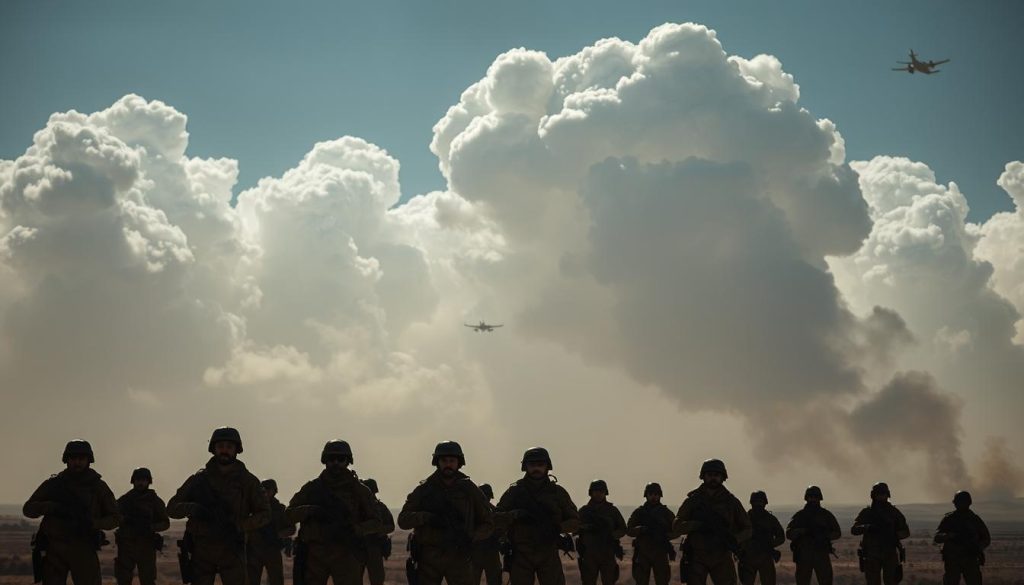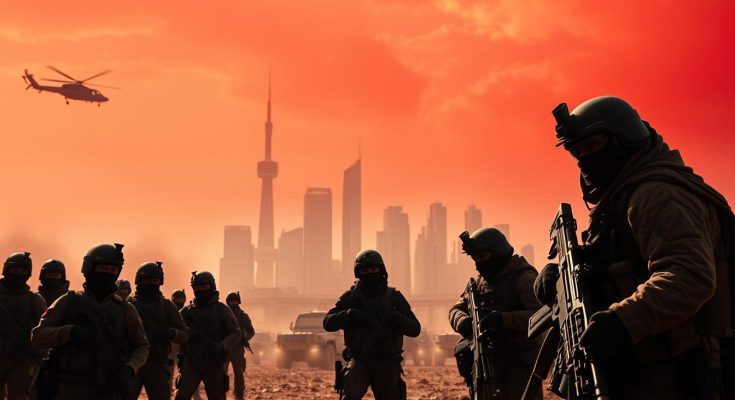The geopolitical landscape of the Middle East is growing increasingly volatile as tensions between Iran and Israel continue to escalate. Recent statements from Iranian officials have highlighted the potential consequences of U.S. involvement in Israeli military actions.
The situation is complex, with multiple factors at play, including historical grievances, regional security concerns, and the intricate dynamics of international relations. The possibility of an all-out war is a daunting prospect, with far-reaching implications for global stability and security.
The warning issued by Iran serves as a stark reminder of the delicate balance in the region. As the international community watches with bated breath, the need for diplomatic efforts to mitigate these tensions has never been more pressing.
Escalating Middle East Tensions: Background and Context
The current surge in Middle East tensions can be attributed to a combination of factors, including recent Israeli military strikes. The region is a complex geopolitical landscape with multiple players and interests at play.
Recent Israeli Military Operations in the Region
Recent Israeli military operations have been a significant contributor to the rising tensions. These operations have been conducted in various parts of the region, often targeting what Israel perceives as threats to its security.
U.S. Military Presence and Support for Israel
The U.S. maintains a significant military presence in the Middle East and has been a long-standing supporter of Israel. This support is seen as a crucial factor by some in the escalating tensions, as it is perceived differently by various regional actors.
Iran’s Strategic Alliances and Regional Influence
Iran’s strategic alliances with certain regional actors and its influence across the Middle East play a critical role in the current tensions. Iran’s actions and responses are closely watched by both its allies and adversaries.
The interplay between these factors contributes to the volatile situation in the Middle East, with each action and reaction potentially escalating the tensions further.
Iran Warns U.S. Involvement in Israeli Strikes Would Risk “All-Out War”
The Iranian government has cautioned that U.S. participation in Israeli strikes could escalate the conflict into an all-out war. This warning comes amid heightened tensions in the Middle East, where Iran’s strategic alliances and regional influence are being closely watched.
Official Statements from Iranian Leadership
Iranian leaders have made it clear that any U.S. support for Israeli military actions will be met with severe consequences. Supreme Leader Ali Khamenei emphasized that such involvement would be considered a significant threat to regional stability. Official statements from Tehran have consistently highlighted the potential for a broader conflict if the U.S. does not refrain from backing Israeli strikes.

Specific Threats and Military Readiness
Iran has demonstrated its military readiness through a series of drills and strategic maneuvers. The country’s military capabilities, including its missile program, are seen as a deterrent against potential aggressors. Specific threats have been made against U.S. interests in the region, underscoring the seriousness with which Iran views potential U.S. involvement.
| Aspect | Iran’s Position | Potential Impact |
|---|---|---|
| Military Readiness | High alert status, missile drills | Deterrence against U.S. and Israel |
| Diplomatic Efforts | Ultimatums to the U.S. | Risk of diplomatic fallout |
| Regional Influence | Strong alliances with regional actors | Potential for broader conflict |
Diplomatic Communications and Ultimatums
Iran has engaged in diplomatic efforts to convey its warnings to the U.S., including direct communications and ultimatums. These efforts underscore the gravity of the situation and the potential consequences of U.S. actions. The international community is watching closely as diplomatic channels remain open, albeit with significant tension.
U.S. Response and International Reactions
Iran’s threats of an “all-out war” if the U.S. is involved in Israeli strikes have prompted a cautious response from the White House. The situation has drawn significant international attention, with various stakeholders weighing in on the potential implications of U.S. involvement.
Official White House and Pentagon Positions
The White House has emphasized the need for diplomacy to de-escalate tensions in the region. Pentagon officials have reiterated the U.S. commitment to supporting its allies while avoiding further conflict. The administration’s response reflects a balancing act between supporting Israel and mitigating the risk of a broader conflict.
Congressional Perspectives on Middle East Policy
Congressional views on U.S. Middle East policy are diverse, with some lawmakers advocating for a more restrained approach to military intervention. Others support a strong stance in backing Israel. This division reflects the complexity of U.S. foreign policy in the region.
International Community and UN Security Council Stance
The UN Security Council has called for restraint from all parties involved, emphasizing the need for diplomatic solutions to the crisis.  The international community remains vigilant, aware that the situation could escalate rapidly.
The international community remains vigilant, aware that the situation could escalate rapidly.
The U.S. is working closely with its international partners to find a peaceful resolution, navigating the intricate dynamics of foreign policy and international conflict in the Middle East.
Conclusion: Implications for Global Security and Potential Paths Forward
The escalating tensions between Iran and Israel, with potential U.S. involvement, pose a significant risk to global security, heightening the likelihood of an international conflict. The situation is complex, with deep-rooted geopolitical dynamics and strategic alliances that could lead to a broader military escalation.
A key factor in this delicate balance is the level of U.S. support for Israel, which Iran has warned could lead to “all-out war.” The international community is watching closely, with the UN Security Council and various nations urging restraint and diplomatic solutions to mitigate the risk of further conflict.
Moving forward, a peaceful resolution will require careful diplomacy and a nuanced understanding of the regional dynamics. The positions of the involved parties, including the U.S., Iran, and Israel, will be crucial in determining the path forward. By prioritizing dialogue and cooperation, it may be possible to reduce tensions and avoid a wider conflict, ultimately minimizing the risk to global security.



